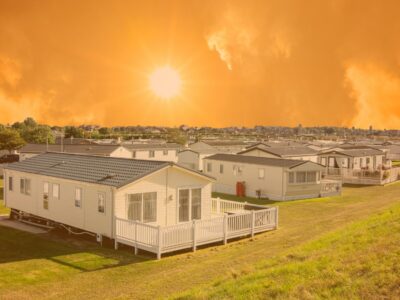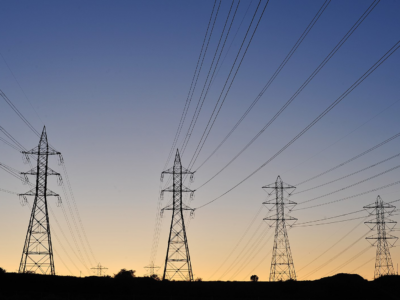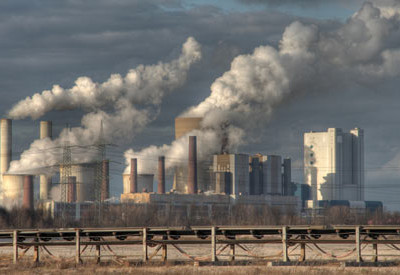General
California Seeks to Protect Homes from Excessive Indoor Heat
Guest contributor Cassandra Vo writes that the state should do more to protect mobile homes dwellers from heat. Work by a UCLA Law Clinic on behalf of Leadership Counsel for Justice and Accountability points the way forward on inclusive heat resiliency standards.
Guest contributor Cassandra Vo is a J.D. Candidate at UCLA Law (’25) specializing in environmental law. Hotter, deadlier, and more frequent heat waves have become one of the most surefire signs of a changing climate in our day-to-day lives. California recognized the need for action on this issue in 2022 by bringing to life AB …
Continue reading “California Seeks to Protect Homes from Excessive Indoor Heat”
CONTINUE READINGWestern States Should Opt In to Regionalized Electricity Markets
Guest contributor Kelly Cook writes that regionalization efforts present a low risk that federal control will threaten state authority.
In the West, the benefits of electricity market regionalization appear more attractive than ever. “Regionalization” refers to efforts to expand coordination between Western states to buy and sell wholesale electricity through centralized federal power markets. Increased coordination, made possible through regional transmission organizations (RTOs – independent non-profit organizations that operate the grid and oversee the …
Continue reading “Western States Should Opt In to Regionalized Electricity Markets”
CONTINUE READINGHow the ICC is Using International Criminal Law to Prosecute Suspects of Eco Crimes
Guest contributor Aria Burdon Dasbach writes that the International Criminal Court is in the process of weighing dozens of suggestions for how to go after global environmental crimes.
There are many different ways that our global society has attempted to address environmental damage and climate change. We fund climate technology startups. We elect representatives that keep the climate in mind. We start nonprofits dedicated to reestablishing our collective sustainable relationships with earth systems. And we litigate in civil and federal courts at the …
CONTINUE READINGWhy the New Climate Reg for Coal is a Perfectly Normal EPA Rule
EPA’s approach isn’t a novel innovation. It’s just EPA applying its usual approach.
The problem isn’t that EPA’s new climate regulation for power plants will crush the coal-fired generation industry. It’s that much of the industry is so economically weak it can’t survive any kind of regulation.
CONTINUE READINGWe Need a True Debate Over Income-Graduated Fixed Charges
A state bill to cap the fixed charges utilities can collect in California would shut down an important debate about equity and rate design. Here’s a better way forward.
Electricity rate design is unavoidably technical. It also has huge implications for equity, climate change, and ensuring a grid that works. Rate design can be used to promote many different goals, from efficiency to bill stability, but it always entails distributive decisions. Rate design determines how we distribute the costs not just of electricity, but …
Continue reading “We Need a True Debate Over Income-Graduated Fixed Charges”
CONTINUE READINGU.S. Supreme Court Revisits, Tightens Regulatory Takings Limits on Land Use Regulation
California Homeowner’s Takings Challenge to County’s Traffic Impact Fee Heads Back to State Court
On April 12th, the U.S. Supreme Court revisited a constitutional doctrine near and dear to its institutional heart: when and under what circumstances does a land use permit condition violate the Fifth Amendment’s Takings Clause? In yet another “regulatory takings” case from California, the Supreme Court wound up not answering that precise question. Instead, the …
CONTINUE READINGCalifornia Wins Major Clean Air Act/Climate Change Case in D.C. Circuit
U.S. Court of Appeals Rejects Red States’ Challenge to California’s CAA “Waiver Authority”
This week California and the Biden Administration’s Environmental Protection Agency won a critically-important environmental lawsuit in the U.S. Court of Appeals for the District of Columbia. The case involves a constitutional challenge brought by a coalition of conservative (“red”) states to E.P.A.’s delegation of federal Clean Air Act (CAA) authority for California to adopt …
Continue reading “California Wins Major Clean Air Act/Climate Change Case in D.C. Circuit”
CONTINUE READINGPower of the People: Environmental Advocacy in China
Several of China’s most prominent environmental advocates will join a keynote talk at UCLA Law on the role of civil society in addressing China’s global environmental impacts.
China’s global rise has raised concerns about impacts on the environment in a bewilderingly wide range of issues. These include global climate change, deforestation, impacts on rare and endangered species, harm to fisheries, environmental impacts of overseas infrastructure, mining, and energy sector investments, to name just a few. Popular attention has often focused on Chinese …
Continue reading “Power of the People: Environmental Advocacy in China”
CONTINUE READINGA Total Eclipse of the Heat
The eclipse mania gripping U.S. media and the entire nation is an opportunity to gaze in awe at the climate crisis we’ve unleashed and talk about our collective response.
Millions of Americans traveled this week to the path of totality to hunker down with loved ones and total strangers to gaze upwards at one of the most amazing astronomical events of our lives and share something like a transcendent, spiritual experience. I hope we can collectively reckon with another terrifyingly awesome atmospheric event: the …
Continue reading “A Total Eclipse of the Heat”
CONTINUE READINGNo, EVs are Not Worse for the Planet
There’s an electric car culture war raging. It doesn’t hurt to say obvious things, like that electric cars reduce driving costs and pollute far less than gas-powered cars.
If you have somehow managed to escape the frenzied political headlines about electric vehicles, first I envy you and second, I must regrettably inform you that the EV has become an acronym of partisan rancor on par with IVF, DEI, and CRT. There’s a lot of reasons for this electric car culture war: President Biden …
Continue reading “No, EVs are Not Worse for the Planet”
CONTINUE READING













